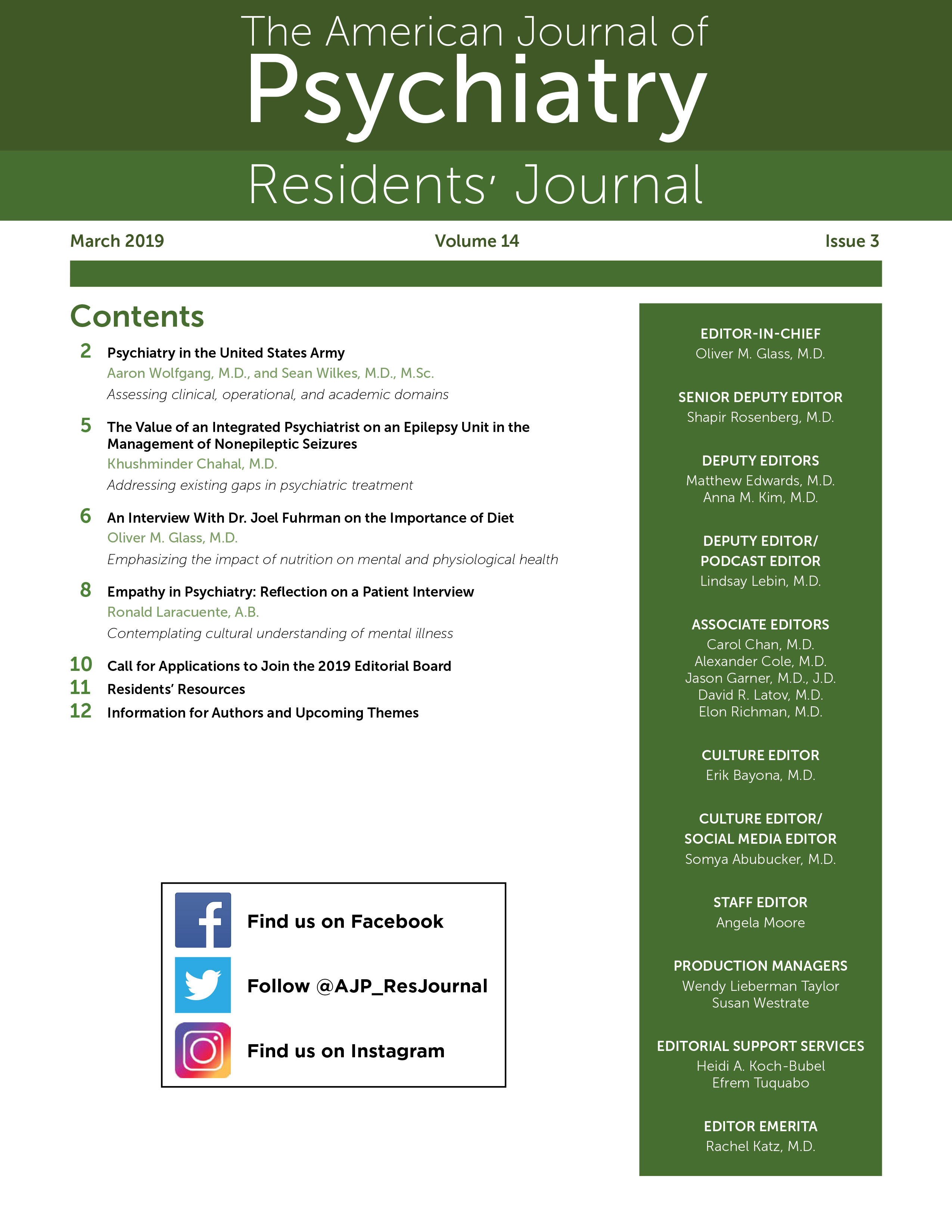"Why are you in the hospital?" a medical student asked. It was a day of firsts. This was our first group interview as part of a first-year course in psychiatry. It was also the first time we were interviewing a hospitalized patient. The young woman hesitated before answering, "I tried to kill myself last Sunday."
That weekend, while I was trying a new restaurant or looking up a movie to watch, this patient was living the darkest time of her life. She felt so alone that she attempted suicide just a room away from her husband and son. I listened intently to her life story, which included joy and adventure but also trauma, substance abuse, and depression. No matter where she went in life—college, new job, marriage, motherhood—her illness stayed with her. It seemed unfair, and to make sense of it, I wanted to know the cause of her symptoms. When I learned about the neurobiology behind depression, I felt as though I didn't have the whole story. My skepticism was caused by my cultural understanding of mental illness.
Multiple generations of my Hispanic, Christian family have believed that nonphysical forces (both internal and external) influence our thoughts and emotions. In this schema, disorders of the mind can be cured only by refocusing one's soul toward God, who can then help to remove negative external forces. Although not everyone believes in the idea of "demons" that cause depression or addiction disorders, many people believe that failures in willpower can cause mental illness.
The next time I was home, I discussed the field of psychiatry with my family members. Using my newfound knowledge of diagnostic criteria, we jokingly pretended to diagnose people in the family. However, the tone changed when the topic of treatment was brought up. One family member stated that she believed medical treatment is a way to get out of a relationship with God, which is, culturally, viewed as the true cure for mental illness. No explanation I provided convinced my family that these medications were used to restore function rather than to create something artificial. Desperate for a different approach, I began to talk about the young woman I interviewed in the hospital.
I challenged my family to imagine how scared the patient must feel—how much trauma she has experienced. I told them about how she hid her symptoms from herself and her family because she was too ashamed to seek treatment. Even if her problems were caused mainly by spiritual weakness, should that stop people from trying to help her? In the face of adversity, doesn't every human being deserve someone willing to help?
I won't ever know exactly why this patient attempted suicide. But I realize now that you don't need all the answers to identify when someone needs help. We understand mental illness through cultural lenses. When these lenses are too narrow, psychiatric disorders become stigmatized. Thankfully, empathy can be used to broaden our perspectives—to make common ground. As I learned from my own family, conversations about mental illness can be difficult, but they can make a difference in our patients' lives.
